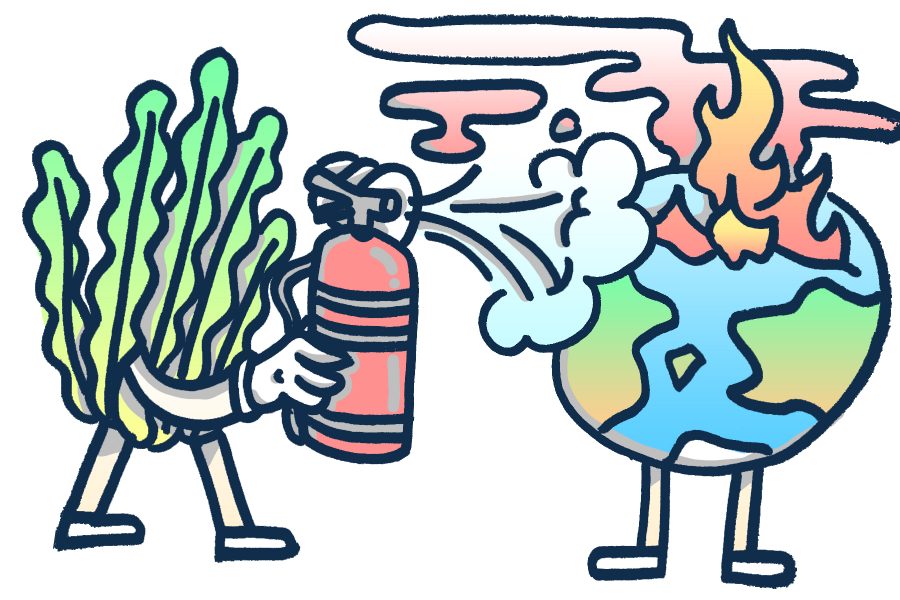A recent research study at the University of California – Santa Barbara, focused on the possible benefits of seaweed aquaculture to the environment and in combating global warming. Published in Current Biology, “Blue Growth Potential to Mitigate Climate Change through Seaweed Offsetting” drew attention to the carbon dioxide emissions caused by the food industry.
Researchers who conducted the study, Halley E. Froehlich, Jamie C. Afflerbach, Melanie Frazier and Benjamin S. Halpern mapped potential suitable waters for growing seaweed based on documented wild ranges of seaweeds, ideal temperature ranges for growth, nutrient availability and the countries that already produce seaweed.
According to the study, 48 million square kilometers of the oceans are suitable for seaweed aquaculture, which could help carbon offsetting by sinking the algae that stores carbon in its tissues in the deeper ocean.
“Seaweed production of 500 million tons would consume 135 million tons of carbon, which is 3.2 percent of the carbon added to seawater each year from greenhouse gas emissions,” wrote the Global Aquaculture Alliance on its website.
In a World Bank document, “Seaweed Aquaculture for Food Security, Income Generation and Environmental Health in Tropical Developing Countries,” it is predicted that the world will also need to produce 50–70% more food by 2050.
“Producing large volumes of seaweeds for human food, animal feed and biofuels could represent a transformational change in the global food security equation and in the way we view and use the oceans,” the document states.
Considering the carbon emission caused by only the food industry — which is an essential issue to address in order to combat climate change according to the Intergovernmental Panel on Climate Change — seaweed aquaculture seems like a promising solution.
Froehlich, who is an assistant professor in the Department of Environmental Studies and in the Department of Ecology, Evolution and Marine Biology at UC Santa Barbara and one of the researchers of the project, told The Current: “We really wanted to know if it could be beneficial, but also be realistic about its potential.”
“At a much larger scale, we find seaweed culturing extremely unlikely to offset global agriculture, in part due to production growth and cost constraints.
Yet offsetting agriculture appears more feasible at a regional level, especially areas with strong climate policy, such as California,” the research stated.
It is obvious that the possible grand-scale implications require more research, resources and awareness both in public and in the industry itself.
Additionally, considering the extensive indicators of climate change nowadays, seaweed aquaculture would not be able to combat climate change alone, as researchers also agreed.
As the first global assessment of seaweed aquaculture’s carbon sequestration scaling potential, this study can encourage more scientific studies that considers similar carbon-offsetting solutions to be conducted in the future.









